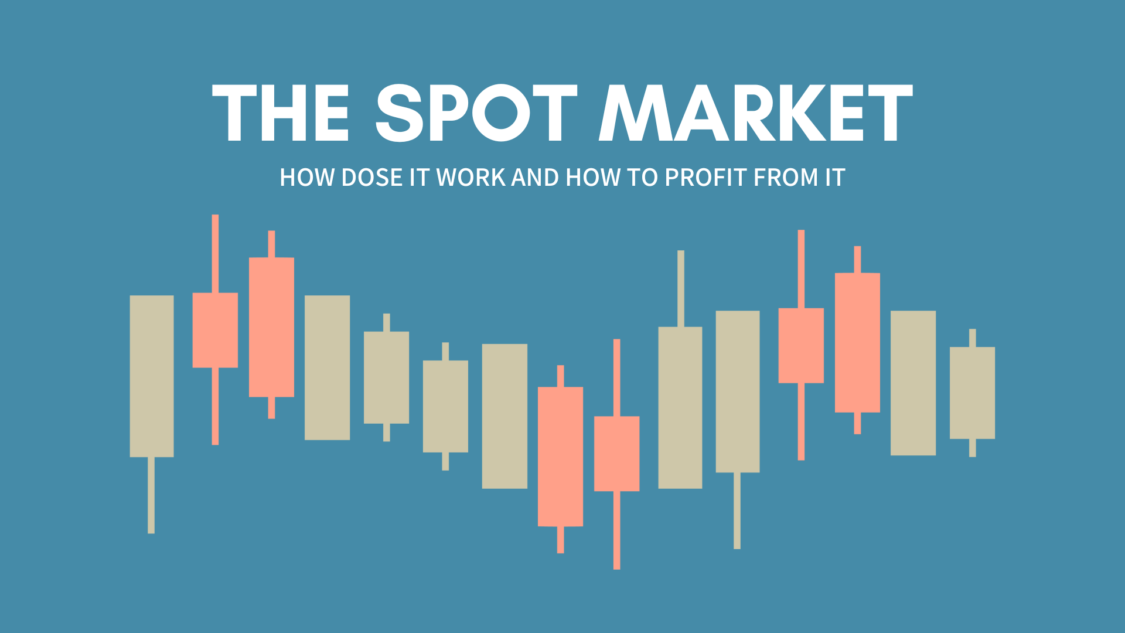- What is Spot Trading?
- Advantages of spot markets:
- Disadvantages of spot markets:
- How do traders typically analyze the market before making a spot trade?
- How has the spot trading market for cryptocurrencies evolved, and what changes can we expect to see in the future?
- What qualifications or skills do successful traders in spot trading typically have?
- What are some popular platforms for this method of trading in the cryptocurrency market?
- What types of cryptocurrencies are typically traded in this type of trading?
- How do regulatory and legal issues impact spot trading in the cryptocurrency market?
A spot market is a financial market in which public assets are traded immediately. The process goes forth in the following way. The buyer purchases an asset with fiat or another medium of exchange following the delivery of the asset, which usually takes place immediately. Therefore, traders make the payments upfront; spot markets are also known as cash markets. When using the cash markets for trading, you can only make exchanges with the assets you own; there is no leverage or margin.

What is Spot Trading?
Spot traders look to profit from this market by purchasing assets and hoping they rise in value. They often sell their assets once the price increases and, in this way, can make an income. Spot traders also use short markets. Short markets involve selling financial assets and repurchasing when the value goes down.
Spot price is the market price of an asset. You can purchase and sell immediately at the best available price by using a market order on an exchange. There is a chance that the market price will increase or decrease while the transaction is taking place. Spot prices are updated in real-time. Depending on the asset, delivery times can vary. It is typically immediate delivery or within T + 2 days. This refers to the trade date plus two business days.
Advantages of spot markets:
- Prices in the spot market are transparent and rely on the supply and demand of that specific market. This is a significant advantage in that future markets often include multiple reference prices.
- Spot trading is straightforward, not including various rules, rewards, or risks. When investing a certain amount, you can calculate the risks easily with the information at hand.
- With spot trading, there’s no risk of being liquidated or getting a margin call. You can set and have peace of mind. No need to check in now and then unless you want to make short-term trades. You can enter and exit trades when you desire.
Disadvantages of spot markets:
- Potential gains in the spot market are at a lower percentage than they are in future and marginal trading.
- Budgeting and revenue can be highly volatile by relying on the spot market.
- Spot markets can leave you with assets that are difficult to hold, depending on what you’re trading. Spot purchasing crude oil, for example, would involve physical delivery of the asset. Regarding cryptocurrencies, having tokens and coins entails a responsibility to keep them secure and safe. You can still obtain exposure to these assets by trading futures derivatives, but you must settle with cash.

How do traders typically analyze the market before making a spot trade?
Spot traders typically use various analytical tools and techniques to analyze the market before making a spot trade. These may include technical analysis, fundamental analysis, and sentiment analysis.
Technical analysis involves studying historical price data and charts to find trends and patterns in the market. Traders may also use various technical indicators, such as moving averages, trend lines, and oscillators.
Fundamental analysis is the process of analyzing the underlying factors that may influence the price of a cryptocurrency. The technology behind it, the strength of its development team, and the overall market sentiment toward it.
Sentiment analysis involves gauging the overall mood of the market towards a particular cryptocurrency or the cryptocurrency market altogether. This can include analyzing news articles, social media posts, and other sources of information to identify potential market trends and changes in sentiment.
In addition to these analytical tools and techniques, traders often use a variety of risk management strategies to help mitigate potential losses, including setting stop-loss orders, diversifying their portfolios, and using leverage and margin trading. Overall, the key to successful market analysis in spot trading is to use a combination of techniques to identify potential trading opportunities and manage risk effectively.
How has the spot trading market for cryptocurrencies evolved, and what changes can we expect to see in the future?
The spot trading market for cryptocurrencies has significantly changed since being introduced. Initially, the market was largely unregulated and dominated by retail investors. However, as cryptocurrencies gained wider acceptance and mainstream adoption, institutional investors and large financial institutions began entering the market, increasing liquidity and trading volumes.
Looking to the future, it is likely that the spot trading market for cryptocurrencies will continue to evolve and mature. The beginning of every new trend and cycle is a little weary. Regulatory oversight is likely to increase. It is leading to greater transparency and stability in the market. Institutional adoption of cryptocurrencies is also expected to continue, which could lead to increased liquidity and trading volumes.
Overall, the spot trading market for cryptocurrencies will likely evolve with market conditions driven by technological innovation, regulatory changes, and shifts in investor sentiment.
What qualifications or skills do successful traders in spot trading typically have?
First and foremost, the most important skill a spot trader needs is knowledge of financial markets. Spot traders usually have a deep understanding of the market, including the impact of specific prices and the mechanics of trading. Analytical skills are also an essential factor in spot trading. Spot traders need the ability to analyze market data and make decisions based on analysis.
Thirdly, managing risk is crucial in all types of trading, especially spot trading. Successful traders usually have a basic or relatively strong understanding of risk management techniques such as stop-loss orders, hedging strategies, etc. Trading requires a great deal of discipline, especially when managing emotions. Successful traders can maintain discipline and stick to their trading plan, even in market volatility.

What are some popular platforms for this method of trading in the cryptocurrency market?
Several popular platforms for spot trading in the cryptocurrency market offer different features and services. Some of the most common ones are.
- Binance: Binance is one of the more popular crypto exchanges out there. They offer a wide range of digital assets for spot trading. They are known for its low fees, high liquidity, and user-friendly interface.
- Coinbase: Coinbase is a popular US-based cryptocurrency exchange offering spot trading services for various digital assets. It is known for being user-friendly and having high-security standards.
- Kraken: Kraken is a US-based cryptocurrency exchange with spot trading for various digital assets. It is known for its high-security standards and low fees.
- Bitfinex: Bitfinex is an exchange that offers spot trading. It is known for its advanced trading features, including margin trading and lending.
- Huobi: Huobi is a Singapore-based cryptocurrency exchange that offers spot trading for various digital assets. It is known for its high liquidity and low fees.
These are just some of the many platforms available for spot trading in the cryptocurrency market.
What types of cryptocurrencies are typically traded in this type of trading?
A wide variety of assets can be used for this method of trading. Some of the many are Bitcoin, Ethereum, Ripple, Bitcoin Cash, Litecoin, Cardano, and Polkadot.
How do regulatory and legal issues impact spot trading in the cryptocurrency market?
One of the key issues regarding this trading method is the need for more clarity around regulatory frameworks. Countries have different rules and regulations regarding cryptocurrencies, which can create uncertainty for traders and investors. This leads to increased volatility in the market, as traders are still determining how regulatory changes may impact the value of their investments.
Overall, regulatory and legal issues significantly impact spot trading in the cryptocurrency market, creating uncertainty and risk for traders and investors. The market will bring more stability, which may also come with increased regulation and compliance requirements for traders and exchanges.
Conclusion
Spot markets have become a common way of trading, especially for beginners. Although it can seem very simple, it’s good to have some basic knowledge of its advantages and disadvantages. In conclusion, spot trading is a popular method of trading cryptocurrencies where traders buy and sell digital assets for immediate delivery.
The spot market has evolved significantly, with increased adoption leading to greater liquidity and trading volumes. However, the market also faces challenges, such as regulatory and legal issues, which can impact investor confidence and create volatility. Successful trading requires careful analysis of market trends, risk management strategies, and a deep understanding of the cryptocurrency market. Spot trading is likely to remain a trading method for investors and traders seeking to profit from the volatile market.




